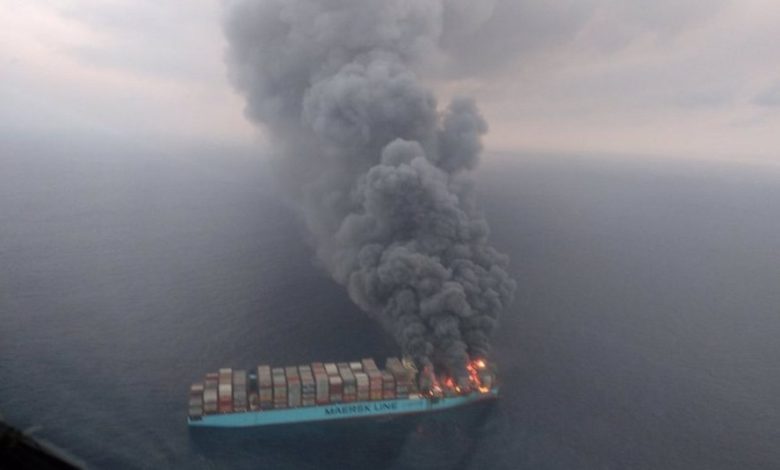Major boxship fire occurs every 60 days

Insurer TT Club is pushing for greater scrutiny of dangerous goods carriage onboard boxships, warning that there is now a major containership fire at sea on average every 60 days.
The first three months of this year have been far above the historical average with insurers bracing for massive claims from a series of high profile boxship fires in 2019.
TT Club’s records indicate that across the intermodal spectrum as a whole, 66% of incidents related to cargo damage can be attributed to poor practice in the overall packing process; that is not just in securing but also in cargo identification, declaration, documentation and effective data transfer. The calculated cost of these claims in the marine, aviation and transport insurance sector is in excess of $500m a year.
Peregrine Storrs-Fox, TT Club’s risk management director, has made repeated calls for the correct declaration and handling of dangerous goods.
ICHCA International, the cargo handling operatives association, has calculated that of the 60m packed containers moved each year, 10% or 6m are declared as dangerous goods. Information from published government inspections – which are invariably biased towards declared dangerous goods loads – suggests that 20% of these are poorly packed or incorrectly identified. This translates into 1.3m potentially unstable dangerous goods containers travelling around the world each year.
Storrs-Fox emphasized in a release yesterday that this scale of risk is elevated when undeclared or misdeclared dangerous goods consignments are considered. “In these cases an estimate of volumes is more obscure. An indication has been given through the work of one container carrier, Hapag-Lloyd, developing a profiling algorithm to search its booking system for potential misdeclaration of commodities. Results from Cargo Patrol, when extrapolated to the carryings of all the lines, concludes a reasonable estimate in excess of 150,000 volatile containers in the supply chain each year.”
Containerlines are making efforts to mitigate the problem. The Cargo Incident Notification System (CINS), in which many of the top lines participate, has been active for a number of years and has successfully identified a number of commodities that commonly cause problems during transport – not always limited to those formally identified as dangerous. TT Club has additionally promoted, together with UK P&I Club and Exis Technologies, the Hazcheck Restrictions Portal, which is designed to identify and streamline the complexity of regulations and protocols imposed by carriers and ports around the world in relation to transporting declared dangerous goods.
Storrs-Fox, who has been leading TT Club’s Cargo Integrity campaign, yesterday suggested legislative action, and greater enforcement and inspection are needed.
